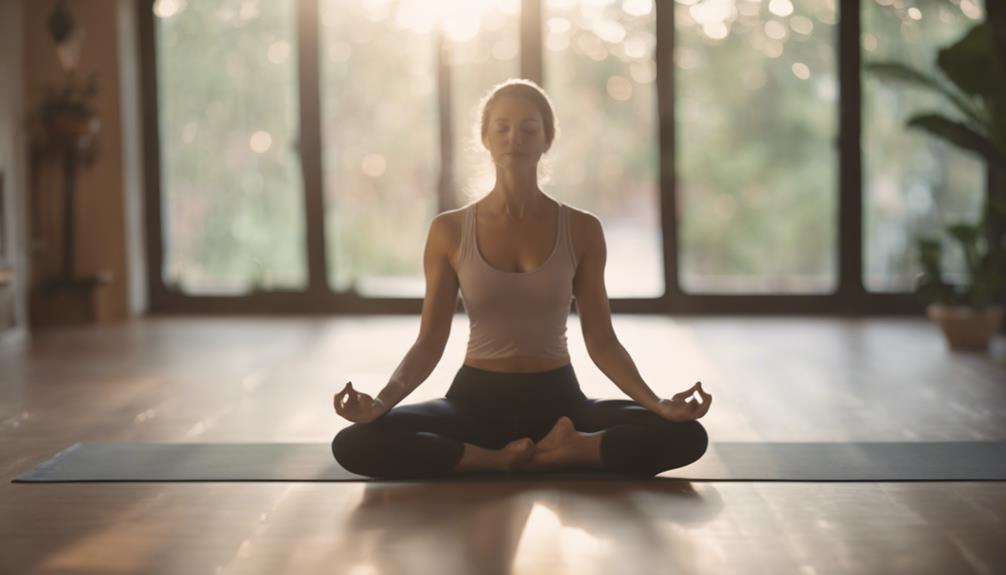How Is Yoga Beneficial

Yoga has been practiced for thousands of years, and its benefits extend far beyond just physical fitness. It is a holistic approach that nurtures the mind, body, and spirit. In this blog post, we’ll explore how yoga is beneficial, covering its physical, mental, and emotional advantages. Whether you are a seasoned yogi or someone considering starting their yoga journey, understanding the benefits of yoga can inspire you to incorporate it into your daily life.
1. Strengthening the Body: The Physical Benefits of Yoga
One of the most prominent ways yoga is beneficial is through its physical advantages. Regular practice can significantly improve strength, flexibility, and balance. Various yoga poses, or asanas, engage different muscle groups, helping to build strength over time. For instance, poses like Plank and Warrior require considerable core and leg strength. Additionally, yoga enhances flexibility, reducing the risk of injuries and improving overall range of motion. As you progress in your practice, you may find that everyday activities become easier and more enjoyable, showcasing the physical benefits of yoga.
2. Enhancing Mental Clarity: The Cognitive Advantages of Yoga
Yoga is not just about physical postures; it also promotes mental clarity and cognitive function. The practice encourages mindfulness, which is the ability to be present and fully engaged in the moment. This focus can lead to improved concentration, memory retention, and problem-solving skills. By incorporating breathing techniques and meditation into your yoga routine, you can create a calm and focused mind. Research has shown that regular yoga practitioners often experience increased mental acuity and creativity, making it an excellent tool for students and professionals alike.
3. Emotional Well-being: How Yoga Supports Mental Health
Another significant benefit of yoga is its positive impact on emotional health. Many people turn to yoga as a way to cope with stress, anxiety, and depression. The combination of movement, breathwork, and meditation helps to regulate the body’s stress response, leading to a state of relaxation. Practicing yoga can increase the production of serotonin and dopamine, neurotransmitters that play a crucial role in mood regulation. Moreover, the community aspect of yoga classes provides social support, which can further enhance emotional well-being. By prioritizing mental health through yoga, practitioners can cultivate resilience and a more positive outlook on life.
Related Posts:
4. Promoting Better Sleep: Yoga’s Role in Restorative Practices
In our fast-paced world, many individuals struggle with sleep disturbances and insomnia. Yoga can be incredibly beneficial in promoting better sleep quality. Certain poses and breathing exercises are designed to calm the nervous system, making it easier to unwind and fall asleep. Additionally, a regular yoga practice can help to regulate sleep patterns and reduce symptoms of insomnia. Incorporating gentle yoga routines, especially before bedtime, can signal to your body that it’s time to relax, making it a natural remedy for sleep issues.
5. Cultivating Mindfulness: The Spiritual Benefits of Yoga
Yoga is deeply rooted in spiritual traditions, and many practitioners find that it aids in their quest for self-awareness and personal growth. The practice encourages a deeper connection with oneself, fostering an understanding of one’s thoughts, emotions, and habits. This journey of self-discovery can lead to a more authentic life and improved relationships with others. By embracing mindfulness through yoga, individuals can cultivate compassion, gratitude, and a sense of purpose, which are essential for spiritual well-being.
6. Supporting Physical Rehabilitation: Yoga for Injury Recovery
For those recovering from injuries or surgeries, yoga can be an invaluable tool in the rehabilitation process. Its gentle movements and emphasis on alignment allow practitioners to regain strength and mobility without putting undue stress on their bodies. Physical therapists often recommend yoga as a complementary therapy for various conditions, including back pain, arthritis, and post-surgery recovery. By focusing on the breath and mindful movement, individuals can safely navigate their healing journey, making yoga a beneficial practice for rehabilitation.
7. Building Community: The Social Benefits of Practicing Yoga
Yoga is often practiced in group settings, which creates a sense of community among practitioners. This social aspect of yoga can be incredibly beneficial for mental and emotional health. Connecting with others who share similar interests fosters a supportive environment where individuals can share experiences, challenges, and successes. Whether it’s attending a local class or participating in online yoga sessions, being part of a yoga community can enhance motivation and accountability in your practice. The friendships formed through shared yoga experiences can also lead to lasting connections that enrich your life.
8. Integrating Yoga into Your Daily Life: Practical Tips for Beginners
If you’re intrigued by how yoga is beneficial and are considering starting your practice, there are several ways to integrate yoga into your daily routine. Begin by setting aside just a few minutes each day for simple stretches and breathing exercises. You can gradually increase the duration and complexity of your practice as you become more comfortable. Consider joining a local yoga class or exploring online resources to find styles and instructors that resonate with you. Remember, yoga is a personal journey, so honor your body’s limits and progress at your own pace. By making yoga a part of your daily life, you can unlock its myriad benefits and enhance your overall well-being.
In conclusion, the question of how yoga is beneficial encompasses a wide range of physical, mental, emotional, and social advantages. From strengthening the body and improving mental clarity to promoting emotional well-being and fostering community, yoga offers a holistic approach to health. Whether you are seeking physical fitness, stress relief, or personal growth, yoga can be a transformative practice that enhances every aspect of your life. So, roll out your mat, take a deep breath, and embrace the journey of yoga!Gaia YogaWhat Bible Says About YogaCan We Do Yoga During Periods